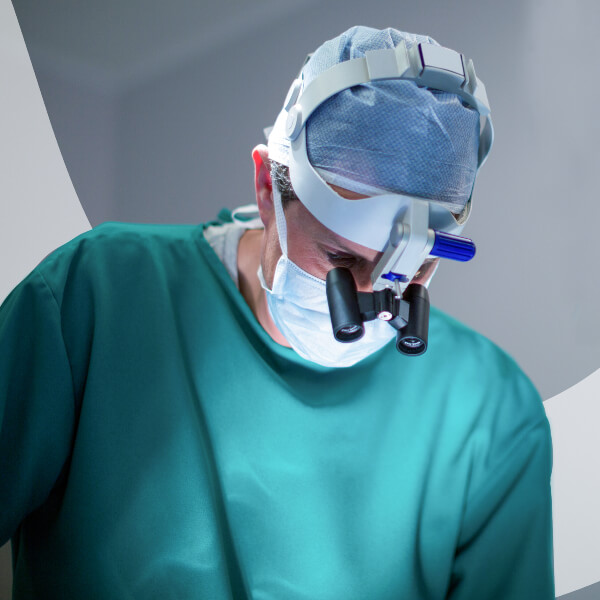Why does acid reflux occur after gastric sleeve surgery?
Acid reflux after gastric sleeve surgery isn’t a new problem, but it is one that catches many people by surprise. The reason it happens is related to the changes in your stomach size and pressure. After surgery, the stomach is reduced to about 25% of its original size. This means it holds less food, but also creates higher internal pressure, which can push stomach acid into the esophagus.
Normally, the lower esophageal sphincter (LES) a muscle between the esophagus and stomach keeps stomach acid where it belongs. However, the increased pressure from the smaller stomach after surgery can weaken the LES, allowing acid to escape upward. This leads to the uncomfortable burning sensation known as heartburn.
Additionally, some patients who had mild reflux before surgery may experience a worsening of their symptoms due to the changes in stomach anatomy. It’s important to remember that while some people may experience a complete reduction in symptoms after surgery, others might face a new challenge.
Common symptoms of acid reflux after gastric sleeve surgery
Acid reflux isn’t just about a burning feeling in your chest; it can also have a range of uncomfortable and sometimes painful symptoms. If you’ve recently had gastric sleeve surgery and are dealing with acid reflux, here’s what you may experience:
Heartburn
Heartburn is the most common symptom of acid reflux. It’s a burning sensation in the chest, typically after eating, that can sometimes radiate to the throat. This happens when stomach acid flows back up into the esophagus.
Regurgitation
Regurgitation is when food or liquid from the stomach comes back up into the mouth, leaving a sour or bitter taste. It’s a common symptom for those who struggle with severe acid reflux.
Trouble Swallowing
If you’re experiencing acid reflux, you might also notice that swallowing feels uncomfortable. This can happen when stomach acid irritates the esophagus, causing inflammation that makes it harder for food to go down smoothly.
Nausea
Feeling nauseous after meals is another symptom that might point to acid reflux. Your stomach may have trouble processing larger meals, leading to the feeling of fullness and discomfort.
Cough or Hoarseness
Chronic acid reflux can irritate your throat, causing symptoms like a persistent cough or hoarseness. If acid is frequently reaching your throat, it may lead to inflammation and other problems in the airways.
Treatment options for acid reflux after gastric sleeve surgery
If you’re dealing with acid reflux after gastric sleeve surgery, there are plenty of options available to help you manage and even eliminate symptoms. The key is finding the right combination of treatments that work for you, as everyone’s body responds differently.
Lifestyle changes: The first step to managing acid reflux
Before turning to medication, many people find relief by making simple lifestyle changes. These changes focus on reducing the pressure in your stomach and promoting healthy digestion.
- Eat smaller, more frequent meals: One of the most effective ways to reduce acid reflux is to eat smaller meals throughout the day. Eating large meals can put pressure on the stomach, which pushes acid up into the esophagus. Instead of three large meals, try eating five to six smaller meals to help control symptoms.
- Avoid late-night eating: Eating just before bed can increase the chances of acid reflux, as lying down after eating allows stomach acid to flow more easily into the esophagus. Make it a habit to finish eating at least 2-3 hours before going to bed.
- Watch your diet: Certain foods can trigger acid reflux, including spicy dishes, citrus fruits, chocolate, fatty foods, and caffeine. Pay attention to what you eat and make note of which foods seem to aggravate your reflux.
- Don’t lie down after meals: After eating, avoid lying flat. It’s better to stay upright for at least 30 minutes to allow gravity to help keep stomach acid where it belongs.
Medications to help manage symptoms
If lifestyle changes alone aren’t enough, medications can provide relief. There are several types of medications that can help reduce the symptoms of acid reflux:
- Antacids: Over-the-counter antacids like Tums or Rolaids work by neutralizing stomach acid. They provide quick relief for mild acid reflux symptoms but are not suitable for long-term management.
- H2 blockers: These medications, such as Famotidine (Pepcid) or Cimetidine (Tagamet), reduce the amount of acid your stomach produces. They are effective for managing moderate reflux symptoms and can be taken as needed.
- Proton pump inhibitors (PPIs): PPIs like Omeprazole (Prilosec) and Esomeprazole (Nexium) are stronger than H2 blockers and work by shutting down the acid-producing pumps in your stomach. These medications are the go-to for more severe acid reflux and are often prescribed for long-term use.
Surgical options for severe acid reflux
In rare cases, when acid reflux is severe and doesn’t improve with lifestyle changes or medications, surgery may be necessary. One option is the Roux-en-Y gastric bypass surgery, which is often recommended for patients who have not responded to other treatments.
The reason this surgery helps with reflux is because it creates a small stomach pouch, which lowers the pressure in the stomach and reduces the likelihood of acid backing up into the esophagus. While this procedure is more invasive than gastric sleeve surgery, it has been proven to significantly reduce acid reflux symptoms in many patients.
When to seek medical advice
If acid reflux is interfering with your quality of life or if you’re finding it difficult to manage symptoms on your own, it may be time to seek professional help. Contact your doctor if:
- You experience severe chest pain, difficulty swallowing, or a feeling of food being stuck in your throat.
- You’ve been unable to manage your acid reflux with lifestyle changes and over-the-counter medications.
- Your acid reflux is causing you to lose weight, have trouble eating, or interfere with your daily activities.
In some cases, your doctor may recommend tests such as an endoscopy or a 24-hour pH monitoring test to assess the severity of your condition and determine the most appropriate course of treatment.
Managing acid reflux: A long-term approach
The good news is that many patients can successfully manage their acid reflux after gastric sleeve surgery with a combination of lifestyle changes, medications, and occasional medical interventions. While it’s common for some level of reflux to occur after the procedure, most patients find that with the right approach, they can minimize their symptoms and continue to enjoy a healthy, active lifestyle.
If you’re struggling with acid reflux after your surgery, don’t hesitate to reach out to a healthcare professional. They can provide the guidance and support you need to get your symptoms under control and keep your weight loss journey on track.










